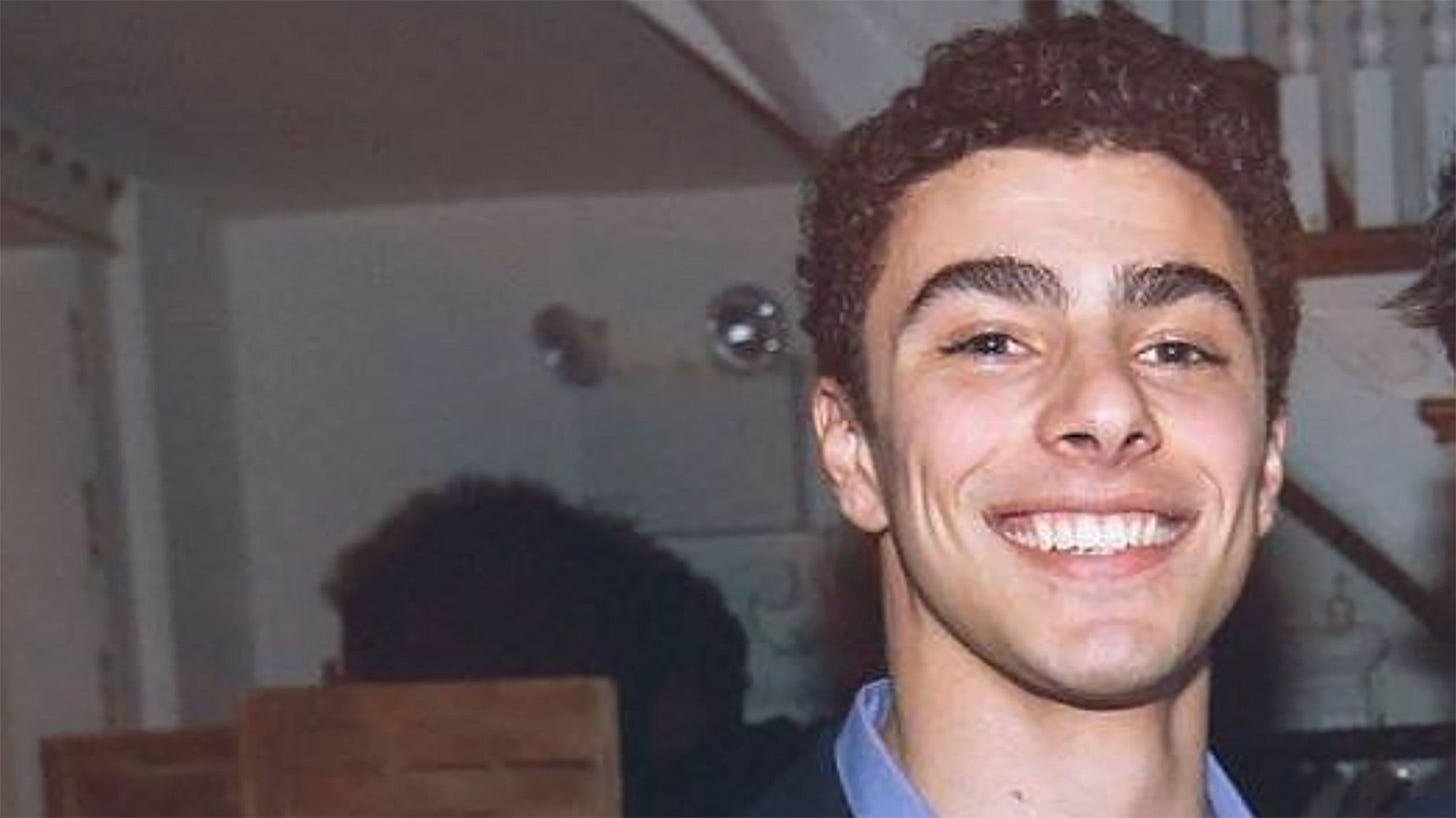"The Unbearable Pain of Luigi Mangione: A Perfect Storm of Isolation, Genius, and Disconnection"
How a brilliant young man became trapped in the chaos of his own mind.
"The weight of genius, when unmoored from human connection, can fracture the very mind it seeks to elevate." — Dr. Joy Harden Bradford
At first glance, Luigi Mangione’s story reads like the promise of the American Dream realized: valedictorian of his high school, dual bachelor’s and master’s degrees in engineering and computer science by his mid-20s, and a job offer from Stanford waiting in the wings. Yet, behind the sheen of accolades lay a young man struggling with a life he could no longer make sense of. Mangione’s unraveling serves as a cautionary tale—not just about the dangers of isolation and chronic pain, but also about what happens when the human mind, designed for connection, becomes trapped in a vacuum of its own making.
The Fragility of the Young Adult Brain
Science tells us that the prefrontal cortex—the part of the brain responsible for decision-making, emotional regulation, and impulse control—is still developing well into one’s 20s. Mangione was just 26 when he shot and killed United Healthcare CEO, Brian Thompson, and his circumstances were anything but conducive to healthy cognitive growth. Chronic conditions like brain fog, irritable bowel syndrome (IBS), and visual snow plagued his day-to-day existence, further clouding his ability to process emotions and regulate his thoughts.
These conditions weren’t just physical; they created a psychological ripple effect. His sleep patterns—already disrupted by relentless pain—spiraled further out of control, feeding into mood instability, heightened isolation, and, eventually, a detachment from reality.
The Tyranny of Logic
Mangione’s academic focus—engineering and computer science—primed him for a world where systems are logical, linear, and solvable. But life, as we all know, is anything but. The Big Bang defies logic. The human heart rejects linearity. Chaos, entropy, and uncertainty are constants of existence. For someone whose brain was trained to seek order, life’s inherent messiness must have felt intolerable.
And so, Mangione sought control where he could find it: meticulous journaling, obsessive meditation, and an endless churn of self-help books. These practices, often celebrated as tools for grounding and growth, seemed to trap him in a vortex of self-focus. The questions he asked himself—“Why am I in so much pain?” “How am I feeling?”—had no satisfying answers, only further descent into despair.
When Isolation Becomes an Echo Chamber
Perhaps the most telling aspect of Mangione’s collapse was his decision to sever ties with family and friends. In doing so, he created a feedback loop of isolation. Without trusted voices to challenge his thoughts or provide perspective, his mind became its own echo chamber, amplifying fears, frustrations, and, eventually, dangerous ideologies.
Social isolation is no small thing. Studies show it’s as detrimental to one’s health as smoking 15 cigarettes a day. It chips away at emotional resilience, leaving the mind more susceptible to despair. Mangione’s disconnection was both a symptom of his pain and a catalyst for his downfall.
The Weight of Being “The Smartest Person in the Room”
Luigi Mangione’s intellect was undeniable. Valedictorian. Dual degrees. A mind sharp enough to critique modernity and romanticize alternatives with surgical precision. Yet, this same intellect may have been his undoing.
Like Ted Kaczynski, another brilliant but isolated figure, Mangione seemed convinced of his own intellectual superiority. Friends drifted away when his book club selections—ranging from The Ape That Understood the Universe to the Unabomber’s manifesto—became too heavy, too misogynistic, too singularly focused. Without a counterbalance of humility or connection, his intelligence became a lonely fortress.
The Human Need for Imperfection
Mangione’s frustrations extended beyond his pain and isolation to the systems around him. He critiqued Japan’s urban modernity after a trip abroad while romanticizing its slower rural lifestyle. He admired England’s healthcare system without acknowledging its flaws. These patterns suggest a yearning for perfection—a system as logical and orderly as the algorithms he once studied.
But life is messy, and no system is perfect. “To survive chaos, you must embrace it,” Dr. Joy Harden Bradford reminds us. “Genius untethered from human connection will always falter under the weight of its own expectations.”
The Capitalist Healthcare Conundrum
Perhaps the cruelest irony of Mangione’s story lies in his struggle with the healthcare system. Like many Americans, he discovered that to get the care he needed, he had to frame his pain within the confines of capitalism. “You have to tell your doctor that your pain is preventing you from working to get surgery approved,” he wrote—a stark commentary on how the value of a human being is often reduced to their economic output.
This revelation, while true, seemed to deepen his disillusionment with the world. It wasn’t just the healthcare system that failed him; it was the very idea that systems could be fair, logical, or just.
A Lesson in Connection
Luigi Mangione’s story is not just about a brilliant young man lost to his pain. It’s a story about what happens when the human need for connection goes unmet. His isolation, amplified by pain, perfectionism, and unmet expectations, created a pressure cooker from which there was no escape.
We are not designed to live in echo chambers. Even the sharpest minds need the grounding force of community, the messy but essential exchange of ideas, and the gentle reminder that life, at its core, is not a puzzle to be solved but a mystery to be lived.
Is the American healthcare system broken? Yes, but we don’t have to break with it.




